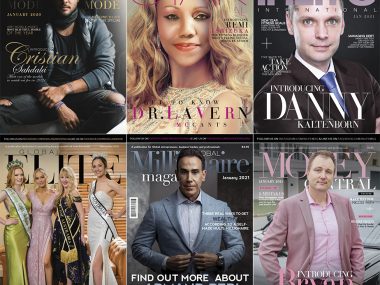Photo Credit: Christopher Ameruoso
By Allison Kugel
Television icon Cindy Williams starred as Shirley Feeney for eight seasons on the smash-hit ABC sitcom Laverne & Shirley. The female-led situation comedy ruled the primetime television airwaves from 1976 to 1983, at a time when independent working women were thought of as novel and female characters chose to diffuse micro-aggressions by killing them with kindness and wink and nod humor. Williams and her, co-star the late Penny Marshall, played off each other in the classic manner of Laurel & Hardy, Martin and Lewis, Lucy and Ricky, and of course, Happy Days’ Richie Cunningham and the Fonz, from which the characters of Laverne & Shirley were born. Williams and Marshall were a classic comedy duo at a time when two female leads surrounded by a cast of male supporting players were not the trend in network television.
Cindy Williams will now take to the national stage starring in Me, Myself & Shirley, her one-woman show, for a limited U.S. tour across nineteen cities, beginning in January 2022. The legendary star will share memories of her career and hilarious backstage tales from her lifetime in entertainment.
Allison Kugel: Tell me about your new one woman show, Me, Myself and Shirley. Is it kind of a living memoir, this show?
Cindy Williams: Well, that sounds a little serious, “a living memoir.” But yes, you’re right, it’s a fun living memoir. It’s a lot of fun stories! I’ve had the blessing to be in show business and to meet a lot of fabulous people, and have a lot of fabulous adventures, and that is what it’s about. We trot along like that, and then I get into Laverne & Shirley, and I have some wonderful fun stuff. I wanted to do this show to make people laugh and have some fun in this day and age, if you will, Allison. I’ve actually done this show before, but it was a different version. A lot of the comments that were made regarding the first incarnation of this show were, “What about your childhood and your early years?” I really didn’t want to do that, but people were curious, so I said, “Well, if I can do it quickly, and in a song, I will do that exposition about my childhood up until when I was eighteen years old, and so we’ve added that. It’s a fun song that the audience can sing along with.
Allison Kugel: You know what’s so cool? When I was telling people that I was going to be interviewing you, there were so many people whom I did not expect to be fans of your, who were super excited about this interview. A bunch of men in their forties, for example, said to me, “Oh man, that was one of my favorite shows, Laverne & Shirley!” People that you would never in a million years know would be fans of yours, and fans of the show.
Cindy Williams: What a compliment. We had a lot of closet viewers (laughs). People did not want to admit that they love Laverne & Shirley, and it was also a lot of people in show business. You know who loved Laverne & Shirley? A lot of rock stars! We had Bruce Springsteen and the E Street Band come down one time to watch a rehearsal. There were a bunch of other rockers who loved it, because in its own way it was very hip, but it was very mild. I talk a lot about this in my one woman show, because in those days we had sensors that were assigned to each [network television] show, especially family hour, which we were a part of. They didn’t let us get away with diddlysquat, and in fact, we couldn’t say “diddlysquat” on the show.
Allison Kugel: (Laugh)
Cindy Williams: We had a born-again Christian sensor assigned to our show. Great guy, but he just wouldn’t let us say things, so it made the show even better, because it made us have to invent words and phrases around those limitations. We couldn’t just refer to certain words for our saucy humor. We had to resort to what I would call risqué church camp humor, and so we just would substitute things like “Vodeo Doe” for going all the way, because we couldn’t say the actual words on the show. So, it was like, “Did you vodeo doe?” and things like that. It became a show that was hip in one respect, but also hip for children. Children could watch it, because there would be innuendoes and certain things that we would do, but it was also okay for children, because there were no actual words spoken. It was all inferred.
Allison Kugel: You had to be very creative…
Cindy Williams: Right, and so it made the show better. We always thought that our Born Again Christian sensor made Laverne & Shirley funnier, because it involved clean humor, which everybody really enjoys whether they know it or not.
Allison Kugel: You know what? You’re right. There was an art to the sitcom back in those days, I think it was the golden age of television in many ways.
Cindy Williams: You’re right, and I never thought of it that way. We performed it in front of an audience, and ran it like a stage play. We wanted our studio audience to see the entire show, because that way we could all travel together and get the joke. The rhythm would be kind of like a little football game. We started at the top, and we ran the show all the way through to the end, without really stopping or going back. We never really cut it up and did scenes, you know, where you do the third scene at the beginning for the audience, and the first scene after that, out of sequence. That is why it had that amazing rhythm. That is why the soundtrack of the audience laughing was real and with the right energy. It just made it a whole and wonderfully fun half an hour, although it still took two hours to shoot [our show]. But the audience was with us, and so they got the whole joke all the way through. Lucille Ball also did I Love Lucy like that, I believe, and we had her crew on Laverne & Shirley.
Allison Kugel: Did you really?
Cindy Williams: Yes, because Desi Arnaz had invented that way of doing things. Lucy was a physical comedienne, and she would be all over the stage, so Desi Arnaz, being the genius he was, put all of their cameras on these dollies. So there are three cameras, you’ve got the stage, as though you are watching a play, and you have the cameras moving with us on dollies. Usually, [television sitcom] cameras are set and stagnant. They are just sitting there, but our cameras were like Lucille Ball’s cameras on the Lucy show, and they moved with us.
Allison Kugel: To capture the physicality, all of the uninhibited physical humor…
Cindy Williams: Exactly. That was Desi Arnaz who did that. Brilliant!
Allison Kugel: Laverne & Shirley was a spinoff of Happy Days. When you were shooting the pilot episode, and even throughout your first season, was there a lot of pressure to live up to the success of Happy Days?
Cindy Williams: I talk about this in my show, Me, Myself & Shirley. Penny Marshall and I were actually writing something together prior to Laverne & Shirley. We were assigned as writing partners on a movie, and so we were working together and then we got a call in our office from Garry Marshall saying, “There are these parts for these two girls on Happy Days and Fonzie (played by Henry Winkler) goes on a double date with Richie (played by Ron Howard). Garry said the girls would be friends of Fonzie’s and that they were, “The girls who date the fleet.” Penny and I thought, “Hmmm, hookers? This will be fun.” He asked us if we could take time off from our little writing assignment to go over to Paramount and shoot this Happy Days episode for a week, and we said, “Sure!” We went over there and did the show and had a lot of fun. Then we went back to our writing, and two weeks later we got a call from Garry’s office and they said that ABC had seen the episode and loved it, and they wanted to “spin the characters off.” At that time Penny and I had no idea what that meant and it had to be explained to us that it meant we were getting our own show. Before we knew it, we were doing other episodes on Happy Days to introduce our characters and then we had the Happy Days characters have their storylines come over to Laverne & Shirley, and that is how it all came about. It happened so fast. Penny and I had no time to say, “Wow, this is really happening!” We never really took it seriously. The first time the show aired, Garry came down and showed us the numbers. He was so happy and elated and it was, like, 36 million people that tuned in. It was so many millions of people, and Penny and I, it absolutely went right over our heads. We did not understand the meaning of that at the time, as far as how it was applied to television.
Allison Kugel: You initially came from a theater background. What was Penny Marshall’s background?
Cindy Williams: I’m probably going to get it wrong, but in college her minor or major was athletics, and she was really interested in teaching PE, and that really worked perfectly and was a plus (referring to their show’s physical humor). She was just a natural entertainer, a natural performer. I went to theater arts college at Los Angeles City College which was a rigorous program. They taught you everything about theater and I knew everything about the stage, but nothing about film and television, which was ironic because I lived in Hollywood and wanted to work in film and television. Later on in Laverne & Shirley, we had film actors come on and they played little parts for fun, but they were thrown by our live audience. They were used to having camera closeups, which I knew nothing about. Penny and I could not understand why they were thrown by our audience of 200 people. I won’t name who, but some of these wonderful film stars were really thrown by it.
Allison Kugel: What was the on-set dynamic working with Garry Marshall and Penny Marshall, who were brother and sister?
Cindy Williams: I never thought of them that way, like “Here comes that brother and sister duo.” They were Garry and Penny. Their father Tony was one of the producers and their sister Ronny was another one, and all their cousins came on set, but that didn’t leave me and my family out. I had my mother on the show and I had my sister on the show. They are very familial. That is one of the reasons that Laverne & Shirley worked so well, is that we were familial. It was an attitude of family on our show. We were all very familiar with each other like a family.
Allison Kugel: I didn’t know you and Penny had a backstory before the show, which I find very interesting. I figured you had met when you both got the job on Laverne & Shirley.
Cindy Williams: I never asked Garry, but I think that he was thinking that Penny and I were right because he knew were already working together and were great together for these two characters, Laverne and Shirley. I do know that when [creators] Mark Rothman, Lowell Ganz, and Garry Marshall were writing the show they said, “What are we naming the girls?” I think Lowell said, “Laverne and…” and Mark said, “and Shirley!”
Allison Kugel: It’s so perfect! Do you know the opening sequence theme song by heart?
Schlemiel, Schlimazel…
Cindy Williams: No, I didn’t know it and I also talk about this in my show. Garry shot the opening credits to the show at the end of a long day. We were on the Paramount lot on this street they call “New York Street,” because it looks like New York. We were losing the light and Garry yelled to Penny, “Penny, teach Cindy that little thing that you and your friends did to count the steps on the way to school!” We quickly practiced it twice and that was it.
Photo credit: Amy Pasquantonio
Allison Kugel: Very off the cuff?
Cindy Williams: Yes. She taught it to me really quickly. I think I went up the wrong way and she said, “No one of us goes up and one of us it goes down, you know, it’s like this.” I didn’t get it and they explained to me later what Schlemiel Schlimazel meant. It’s a miracle I could pronounce it. A schlemiel is a person that jumps out of a window for no particular reason, and Schlimazel is the person they land on. So, it’s like dumb and dumber.
Allison Kugel: The rest of the opening song speaks to my soul! “Give us any chance we’ll take it, read us any rule, we’ll break it…”
Cindy Williams: “We’re gonna make our dreams come true…” It resonated for a lot of people. It was Cyndi Grecco singing that, by the way, and she was marvelous.
Allison Kugel: You’ve mentioned in the past that you had to overcome a challenging childhood. What was that defining aspect of your childhood that, perhaps, made you want to go into acting and comedy?
Cindy Williams: I come from a very funny family. My father was the funniest man I ever knew, but he also drank. He was an alcoholic and when he drank he was another person, and he wasn’t so funny. I kind of had to pilot my way through my childhood because my mother worked at night and my father worked during the day. He would come home and start drinking, and he would want to go to the bars, and he would take me with him from the time I was a little girl. He would lock me in the car and he would go in and drink. When I got older, I had originally wanted to be a nurse, but I didn’t have an academic brain and I flunked biology twice and had to take it in summer school. I thought, “Who wants a nurse who flunked biology?” I would have a good bedside demeaner, but I would read the charts and think I don’t know that the heck I’m supposed to be giving this patient (laughs). There was an audition for the high school talent show where I did a Bob Newhart monologue and I got into the talent show. The drama teacher in charge of the talent show invited me to a play production. I skipped Drama 1 and 2, and I went into play production. In my play production class was Sally Field, who was doing The Flying Nun. I was so jealous of her…
Allison Kugel: You went to high school together? Now I’m jealous!
Cindy Williams: Yes. She was brilliant, even at the age of fourteen and fifteen. Sally was brilliant on stage and everybody recognized it, but the bug bit me and I just loved theater.
Allison Kugel: Okay what parts of the character of Shirley Feeney came from you, Cindy, and what parts had to be filled in to create that character?
Cindy Williams: I always think of situation comedies as personality plays, because whether you believe it or not, the writers watch your personality. You’re playing a character, but then they watch you and write towards your strong suits and your weakness of character, and so there was a lot of me in there. I can be, I wouldn’t call it passive aggressive, but I could be very calm and then if people push me too far, I’ll turn and go Sicilian on them (laughs). They started writing that for Shirley, where she can be very sweet and calm, and then she would scream at somebody, but it was very funny. I loved that turn that they would have the character do. They would have Penny’s strong suits and do the same with her. The boys on our show wrote for themselves, so I don’t know what was going on there, but it was pure brilliance.
Allison Kugel: How are you processing the loss of several of your Laverne & Shirley cast members?
Cindy Williams: I haven’t processed any of it. I still haven’t processed Penny passing. I still talk to her. I still think I’m going to go over there and tell her something, and you know, Phil and Betty, I still see them as present. I know they’re not, but I still see them and relate to them as present, and since Eddie recently passed, I put the framed cast picture on my mantel and I have candles lit. I was just looking at it and thinking, “You’re [all] gone, and I could hear them laughing and saying, “Check, check, check.” Then I realized, it’s just Michael [McKean] and me that are left. I feel like calling him and saying, “I’ll race you to the finish line.” It’s just surreal to me. It’s like they are all in another land. I know they are happy, because I believe in heaven.
I believe in a fun heaven and that they are having fun together. Michael and I are the odd men out right now.
Allison kugel: Do you pray? If so, who or what do you pray to?
Cindy Williams: Is there anything or anyone to pray to other than God?
Allison Kugel: You would be surprised (laugh)…
Cindy Williams: I’m with God all day. I remember one time this joke didn’t work, and I tried and tried, and I turned to Penny and said, “Maybe Jesus can make this joke work.” I’m constantly in that frame of mind, even when I’m throwing hissy fits. I’m in the presence of God and God is in my presence. Otherwise, I wouldn’t make it through, if not to believe that everything is well and good, and that this universe it built on love. People who are afraid of God or Christ, I think they are fearful because they see God as the great punisher. God is unconditional love, and with that comes great humor. When you take humor out of a society, you take a lot of love out of that society. That’s what I think is happening now. I was watching Laverne & Shirley, which Penny and I never did much, because we shot the show on the night it aired. I watched all of the old episodes and there were only two that couldn’t be done today.
Allison Kugel: What was the subject matter?
Cindy Williams: I don’t want to say. It’s two things that could have hurt people’s feelings, but if it was today, Penny and I would have caught those immediately and substituted them for something else. That’s really it, because the humor we had was just universal humor and the joke was always on us. We made sure the joke was always on us, and that we didn’t hurt other people’s feelings. We had a few fat jokes on the show, which I’d get hurt by today because I look fat (laugh), but we wouldn’t have done those jokes today. We wouldn’t want to hurt people’s feelings, unless it was our own; unless the joke was on us, and everyone could laugh at us and with us. That is what the show was all about.
Allison Kugel: I get that. I do feel like in some ways a lot of the sitcom content of the 1970s and 1980s, there was stuff you could never put on today, but it did help to facilitate important conversations in people’s homes. If you look at shows like The Jeffersons or All in The Family, and shows like that, those shows would never fly today.
Cindy Williams: That would just be so stupid because they are obviously making jokes about themselves. The joke is on the character. You need that, as you say, to facilitate a conversation and everybody can laugh at it, for instance, how ridiculous it is for someone to be prejudice. That is what that show is all about, taking those prejudices and shining a light on them so everyone can take a step back and see that it’s not right, but isn’t it funny for people to think that way? That is what they don’t get today. They don’t allow for satire and parody. It’s not allowed. It’s not allowed with stand-up comics today, and it’s a shame because then everything becomes just a flat line. There is no bounciness to life. Everything is so serious and everyone is so afraid.
Allison Kugel: I think there is an art to all of us being able to laugh at ourselves, but I think now that the pendulum has swung so heavily in the other direction, we are all collectively going to have to find a way to bring something back to center so that people can still use humor more freely.
Cindy Williams: …To be able to laugh. There is a whole generation of children that are going to miss out on that. It’s all going to be so correct that you can’t even say, “Gee, I’m in a pickle” anymore. What about the pickles? What do you mean by that? Why does a pickle represent being in a bad situation? The pickle industry may come out and complain.
Allison Kugel: (Laugh)
Cindy Williams: We’ve taught this generation of children to not have a sense of self-humor about themselves. You lose your sense of humor about yourself. If you can’t laugh at situations and you can’t laugh at yourself, you are constantly going to be depressed, and that’s what I think is happening, without using any specifics.
Allison Kugel: Very smart. What do you think you came into this life as Cindy Williams to learn, and what do you think you came here to teach?
Cindy Williams: That’s a very spiritual question. I believe that everyone has a mission, and everyone has something that God has imbued in them, that is a talent. I asked gymnast Cathy Rigby, “When did you know that you could do those triple axels? Did you feel it as a child?” She said, “Yes.” She felt it in her body and that is the gift that God gave her. I wasn’t meant to be a nurse. I was meant to do exactly what I did. That was my service. That is what God sent me here to do. That’s why he didn’t give me an academic brain, because if He did, I would have been a nurse. There are no Ifs, Ands, or Buts about it. I would have gone into the medical profession, but he made me not too smart in biology, and also faint at the sight of blood. I honestly believe that God steered me in the direction of comedy to make people laugh, and that is also why I was born into a funny family.
Allison Kugel: And what do you think you’ve come here to learn
Cindy Williams: I believe that what I’m here to learn after all this time is patience, not to take things so seriously, and not to take everything to heart; to just practice what I preach, and to calm down and say, “It’s going to be alright. And to be able to impart that to my children, that everything will be fine if you wait twenty four hours. I’m not a patient person. I love people, but I can only be patient up to a point, and I can be impatient with myself. What I am learning is patience. Patience, prudence, and to wait and know, and practice that faith, that if you are patient, all things come to those who wait. It’s also faith. The faith that God is going to take care of this and everything is going to be well, even in the midst of chaos and everything in my life seeming to fall apart, I always had faith. It’s like in Indiana Jones when he steps out into the abyss and a stone comes up. He had faith. That is what I’m looking for in my life, the faith of Indiana jones.
Allison Kugel: What is the greatest advice you ever received?
Cindy Williams: It was from my mother and it’s two words: Keep Moving. That is what she said, “Cindy, just keep moving.” Now, whenever I get down and think I can’t do something, I hear my mother say, “Keep Moving.” And so I move, and it works on so many different levels.
Allison Kugel: Wow, I love that! I’m taking that for myself. Lastly, when people come to see your one woman show, Me, Myself, & Shirley, what can they expect from the experience?
Cindy Williams: The first half of the show is me before I was eighteen, followed by things I have done throughout my career that led up to the Laverne & Shirley years. Then, of course, it gets into Laverne & Shirley. I auditioned for the role of Princess Leah in Star Wars, and so I show my audition tape. It’s just fun stuff like that. There is also a Q&A at the end of the show. My audiences love to ask questions. Come prepared to have fun and laugh out loud.
Tickets for Cindy Williams’ one woman show Me, Myself & Shirley are on sale now in various markets, and more information is available at MeMyselfandShirley.com.
Listen to the extended interview with Cindy Williams on the Allison Interviews Podcast at Apple Podcasts or Spotify, and watch on YouTube. Follow Allison Kugel on Instagram @theallisonkugel and at allisoninterviews.com.












